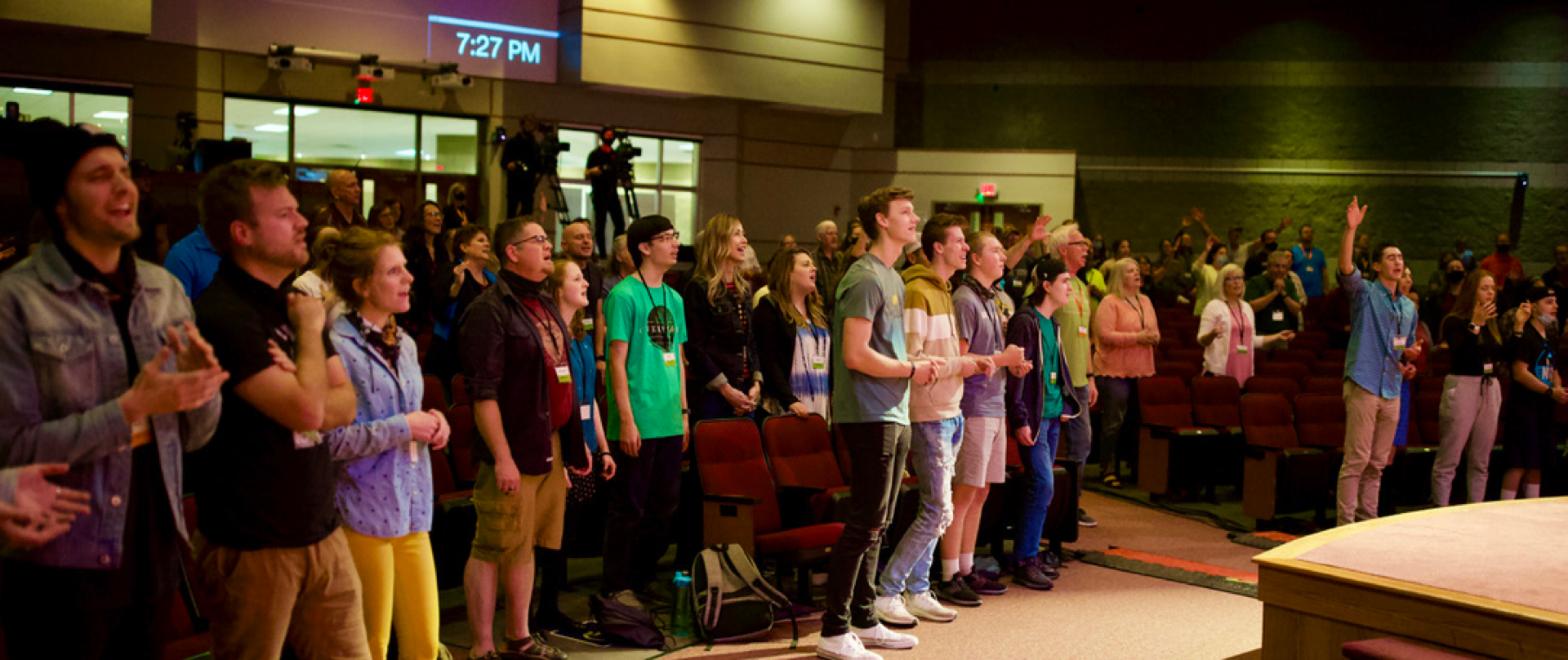
Episode 107: How to Have Difficult Conversation
How to Approach Difficult Conversations as a Worship Leader
As worship leaders, part of our role involves guiding teams and creating an atmosphere for worship that is smooth and aligned with the church’s vision. But sometimes, having difficult conversations with team members becomes necessary. Whether you’re a new leader or seasoned, navigating these conversations with grace is crucial for the health of your team.
How to Build Strong Relationship Equity in Your Worship Team
The foundation for any difficult conversation lies in building relationship equity. As a new worship leader or even an established one, it’s essential to be mindful of not rushing into making changes or addressing issues too soon. Instead, focus on getting to know your team. Building relationships helps you understand the deeper reasons behind certain behaviors. As Andrea Olson said, “We want them to know that we value them as a person, not just for what they can do for us.”
For example, if a team member is consistently late to practice, instead of immediately confronting them, take the time to connect. You may discover that they are dealing with significant challenges outside of church, which impacts their participation. Once trust is established, they’re more likely to be open and receptive to any necessary feedback.
Discovering the Purpose: Understanding the Why Behind the What
One of the most effective ways to handle difficult conversations is by explaining the why behind the what. It’s not just about pointing out an issue but helping team members understand the bigger picture. For instance, let’s take the scenario where someone frequently comes unprepared to rehearsals. Instead of simply stating the problem, explain why preparation is crucial for the entire team’s success.
Andrea mentioned, "We want to honor our team members and make sure we are prepared for Sunday. When we come prepared, we reduce stress and avoid being a distraction during worship." By laying out the purpose behind certain expectations, it helps the person see that it’s not about following arbitrary rules but contributing to a collective mission.
Defining the Role of the Worship Team for Impactful Leadership
A key point Andrea makes is understanding that worship leaders are hosts. As worship leaders, we’re not just musicians but hosts in the house of the Lord. Our primary goal is to create a space where people can encounter God without distractions.
By framing the conversation around this role, it becomes easier to discuss the importance of preparation and unity. Andrea said, "We want to preserve the atmosphere of worship and steward it with integrity." When team members see their role as part of something bigger, it makes the conversation about growth rather than criticism.
Practical Tips for Navigating Difficult Conversations
- Be Direct and Clear: When it’s time to address the issue, avoid being elusive. Clarity helps prevent misunderstandings. Directly address the problem and explain how it affects the team.
- Offer Help: Show that you genuinely care. Ask your team member how you can assist them in overcoming their challenges. This might involve offering additional resources or adjusting their responsibilities to support them during a difficult season.
- Include Leadership: If the conversation involves a serious issue that may lead to a team member stepping down, it’s important to get the church leadership involved. This ensures that you’re acting in unity with the broader church leadership and have their support.
Effective Ways to Conclude Difficult Conversations
Lastly, always make sure to offer grace. Whether the person needs to step down for a season or improve in certain areas, let them know they are valued and appreciated. Offer an option for them to take time off if necessary and reiterate that they are still part of the community.
As Andrea reminds us, "It's about investing in relationships and ensuring everyone on the team understands their role—not just as musicians but as hosts who lead people into God’s presence."
Difficult conversations are an inevitable part of leading a worship team, but when approached with love, clarity, and understanding, they can lead to growth. By building strong relationships and clearly defining expectations, these conversations can strengthen the team and create a more unified atmosphere of worship.
If you found this episode of the Overflow Worship Podcast helpful, we invite you to subscribe and leave a review on Apple Podcasts. Your feedback helps us create more relevant content and reach more listeners. Don’t forget to download our free setlist checklist at overflowworship.com/setlistchecklist.
For more Overflow Worship resources: www.overflowworship.com
Watch the Podcast at: https://www.youtube.com/@overflowworshipofficial
Listen to the Podcast at: https://podcasts.apple.com/us/podcast/overflow-worship-podcast/id1461518398










